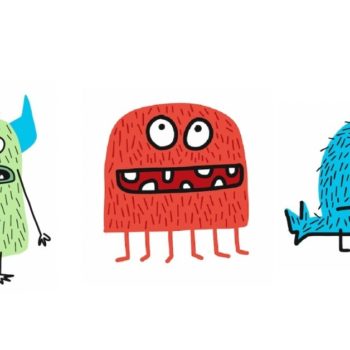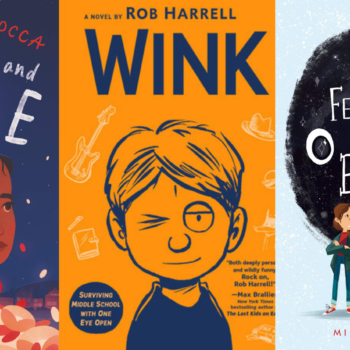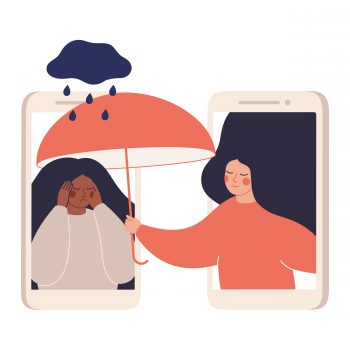Should I discuss deceased loved ones with my child?
/ Kids and Teens : Eleanor Haley
Every once in a while, we receive a question along the lines of...
"I'm grieving a loved one my child never met or doesn't remember. Should I discuss deceased loved ones with my child, or will it upset or frighten them?"
As is often the case in grief, there isn't one black-and-white answer to this question. What you do depends on the child, the person who died, how you feel about your grief, your relationship with the person who died in life and death, and possibly other factors.
All that said, we generally believe it is a good thing to acknowledge your grief and to tell children about deceased loved ones. Below we'll explain our rationale, whether the person was a close relative or someone a little more distant, and we'll discuss seven ways to share memories of deceased loved ones.
If the person was a close relative
First of all, if the person was a close relative like a parent or a sibling, they will likely grieve them. People commonly assume that if a child is too young to remember a loved one when they die, they won't grieve that person.
When we look at grief through our adult lens, we see that a big part of our suffering is sadness over memories and mourning the role that person played in our day-to-day lives. The child doesn't have memories to look back on or awareness of their brief relationship with the person.
You can grieve someone you never knew. You can also grieve something you never had. A child who never knew their loved one might simply grieve different things.
For example, rather than grieving the relationship and specific memories, they might mourn for the absence of these things. They might fantasize about what the relationship would have been like and grieve the loss of what might have been.
They may also feel cheated out of the type of relationship that older siblings, cousins, or parents had with the person who died. And, just like grieving people who knew their loved one, they might be reminded every special day and holiday of the person missing in their life.

If the person was a more distant connection
Even if the person wasn't an immediate relative, maybe they were a family friend or a more distant relative, there's a benefit in being open with your child about the loved one and about your grief. I'll share a personal example.
My mother died when I was pregnant with my eldest daughter - 14 years ago. None of my three daughters had the chance to know her. But, because I can't help but speak about her, she remains an important member of our family.
My children know how much I cared for my mother; they know about the qualities that made her unique and special, and that she would have loved being their grandmother. I also share that I grieve her death in an ongoing way. They know that moments will hit me out of the blue when all of a sudden, I think to myself - and sometimes say out loud - Gosh, I really miss my mom.
And it would appear that talking about my dead mom and my grief hasn't scarred my children for life. Nor has it hurt or frightened them. It allows them to know my mother. It allows me to continue my bond with my mother by sharing her with them. And I honestly think it's made them better little support people when their friends experience loss or hardship.
My experience is obviously anecdotal, and how you handle similar scenarios depends on many different factors related to you, the child, and the person who died. But generally speaking, I'm going on the record as PRO talking about your deceased loved ones with your children.
7 ways to share your deceased loved one with kids who never knew them
1. Look at photo albums or old photos:
I think you might be surprised at how eager some children are to learn about their family history. Who were their aunts, uncles, and grandparents? What was your childhood like? What was their family like when they were a baby? Of course, some children will show more interest than others, but catch them at the right time, and I bet you can get their attention for at least a few minutes.
If you don't have photo albums or stacks of old photos at your disposal, you can also display a picture or two around the house. Over time, the person will become a familiar face the child sees every day, and, at some point, you can tell them the story behind the photo, or you may find they ask.
2. Tell them a story about the past:
Some kids love hearing about when they were younger. So if the person was alive when the child was a baby, share any stories you can remember from that time. For example, I've shared with my eldest daughter how I take comfort knowing my mother knew my daughter was on the way because, in one of my last conversations with my mother, I told her I was pregnant.
If the person died well before the child was born, you could also tell them stories about when you were a child. What was the person like as a parent, friend, or sibling? What influence did the person have on you? How did they teach you, tease you, or make you laugh?
3. Tell your child when something you do as a parent is inspired by your loved one:
This may be most relevant to parents grieving their parents (so, the child's grandparents). Many of us do things, as parents and caregivers, that were shaped by those who took care of us. Whether we view these things as good traits or bad.
Some things feel like precious moments - like saying the same thing to your children when you tuck them in at night that your parents said to you. Other times you may step back and say, "Oh no - I've turned into my mother (or father)!" Regardless, take a moment to share with the child how the people in your past have influenced you.
4. Point out objects that belonged to them:
If you have items around the house that remind you of your loved one or that belonged to them, tell the child about it. They may see these objects every day but they never realized their special significance until you took the time to share their history.
5. Share their favorite bands, sports teams, books, etc
Tell the child about the things the person loved. If a song comes on the radio that reminds you of them, tell the child that. If you love the Cubs because you're loved one loved the Cubs, tell the child where your fandom began. And look - I know some kids may roll their eyes at you when you wax nostalgic - but I promise they're absorbing more than they let on.
6. Tell them when you experience a grief wave:
Sharing your loved one with your child doesn't only mean having Hallmark moments. For example, if you suddenly feel overwhelmed by a grief wave or have a bad day on the person's birthday or death anniversary, it's okay to say so. Saying so may actually help to model for the child that grief is ongoing and challenging, but something we can acknowledge and cope with.
7. Continue a tradition:
Continuing traditions that your loved one was a part of is one of the best ways to connect older generations with new. When carrying out traditions, take time to honor and remember those who have died. Share memories surrounding the tradition like - "You know, my mom used to cook these exact same cinnamon rolls" or "Dad used to make such a mess of stringing the lights on the tree every year."
PS: To learn more about tradition, ritual, and a grief concept called continuing bonds - check out our upcoming webinar.

We invite you to share your experiences, questions, and resource suggestions with the WYG community in the discussion section below.
We wrote a book!
After writing online articles for What’s Your Grief
for over a decade, we finally wrote a tangible,
real-life book!
What’s Your Grief? Lists to Help you Through Any Loss is for people experiencing any type of loss. This book discusses some of the most common grief experiences and breaks down psychological concepts to help you understand your thoughts and emotions. It also shares useful coping tools, and helps the reader reflect on their unique relationship with grief and loss.
You can find What’s Your Grief? Lists to Help you Through Any Loss wherever you buy books:




